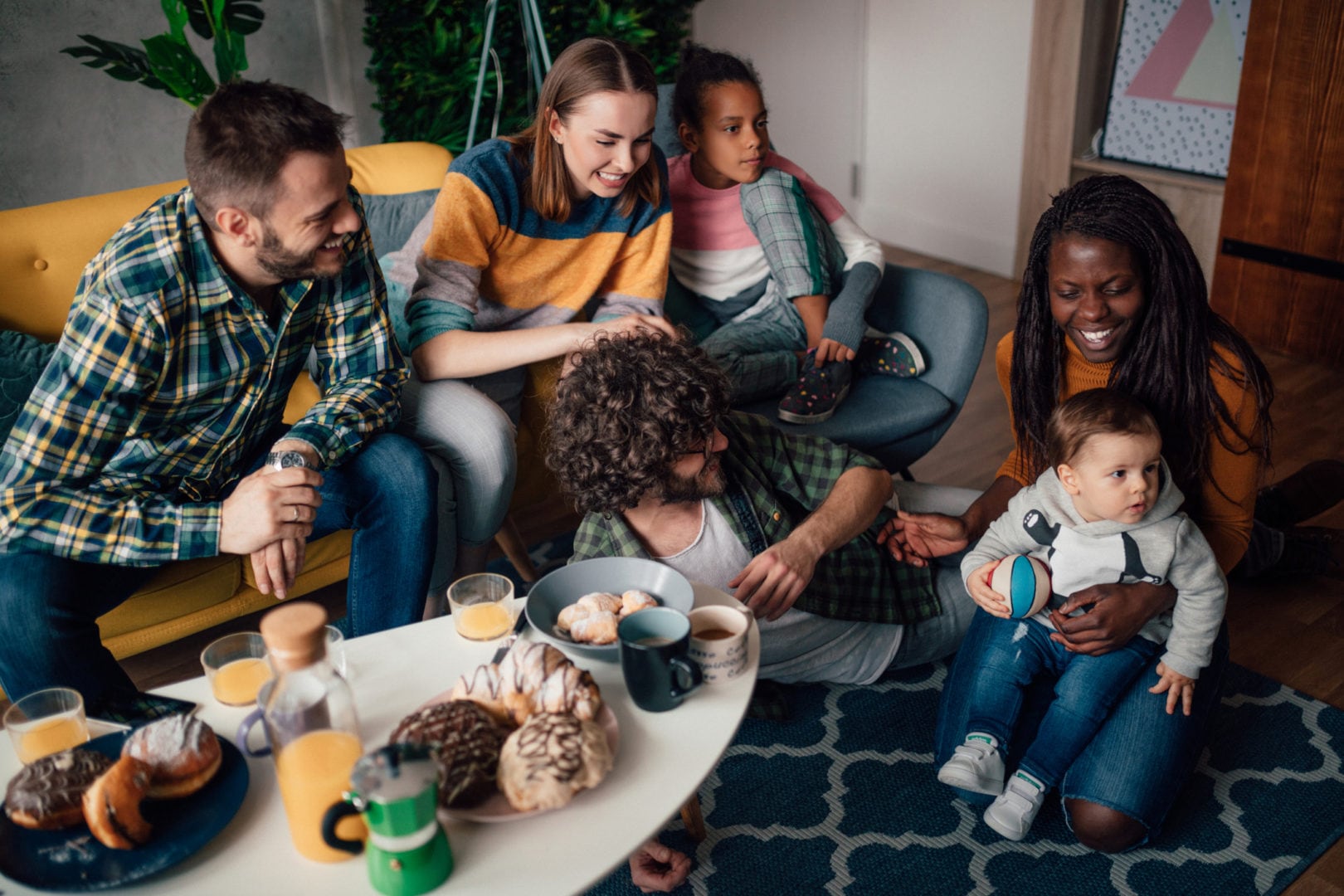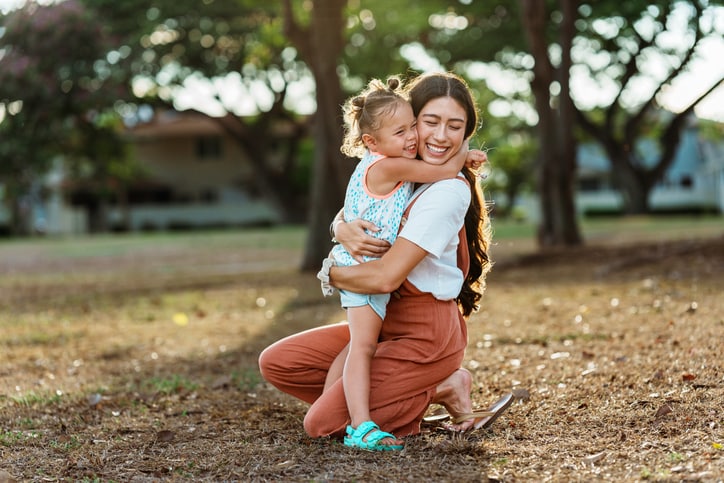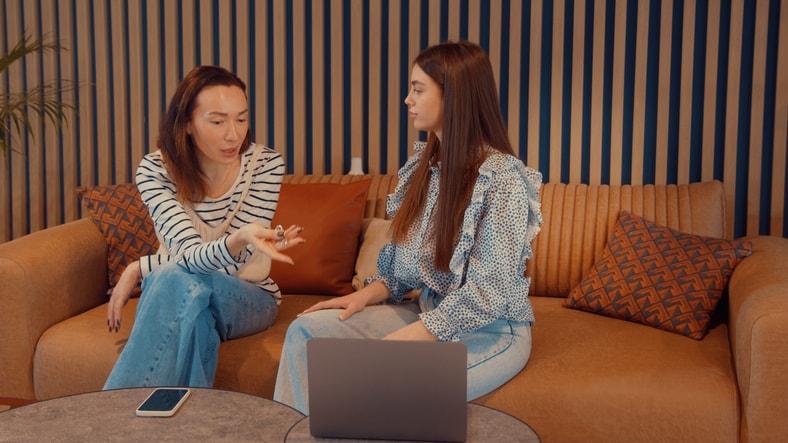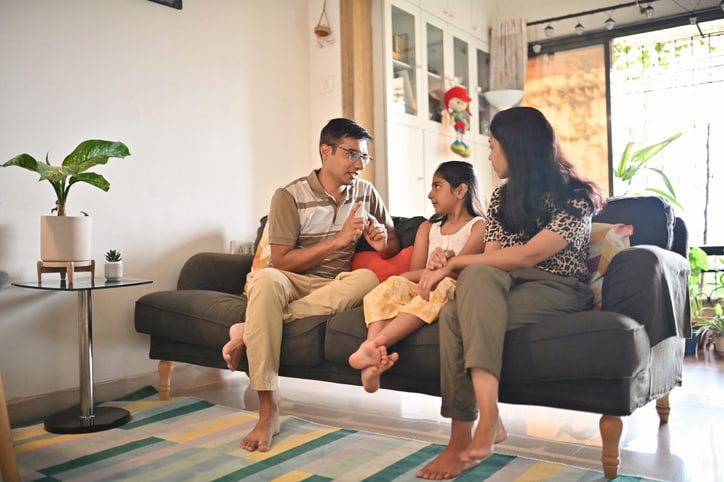Social distancing has proven difficult for many families, but would it be easier if you could do it with friends? As the pandemic lingers on, some families are starting to come together in so-called “double bubbles” to support one another.
The “double bubble” trend first took off in Alberta, Canada in late March, after local officials softened stay-at-home restrictions to allow groups of two families to be in close contact with each other. Families choose one another as a “safe” group to socialize with throughout quarantine. As The Globe and Mail reports, families in double bubbles are using the beneficial plan to split child care and housework with other families, hold playdates or even share birthday dinners or game nights.
Double bubbles are meant to address some of the hardship and loneliness caused by social distancing. Of course, in order for them to work, they still require people to be cautious. In the case of the experiment in Alberta, families who choose to form a bubble with another family are advised to stay within that bubble only and not socialize with additional people. Those who have underlying conditions and are more vulnerable to COVID-19 are also discouraged from participating.
Another rule of thumb, Allyson Harrison, an associate professor in psychology at Queen’s University, shared with The Globe and Mail: Families should be careful to only “bubble” with people who share their values and needs. Participants might even want to consider drawing up a formal agreement to outline the terms of their bubble. “You want these social interactions to help you function better and reduce stress,” Harrison explains. “You don’t want it to add to your stress.”
Although the double bubble concept is starting to pop up in some U.S. cities, like with these San Francisco Bay Area families, they aren’t a major trend yet. However, families are certainly feeling the kind of strain that makes this option seem like a good idea. A recent survey by Syndio finds that 14% of working moms and 11% of working dads have considered quitting their jobs because of family demands caused by the pandemic. Rolling Stone reports that some families are even hosting secret playdates in a desperate bid to get social interaction for their kids while avoiding the judgment that comes with admitting they’ve broken social distancing rules. (It should be noted that experts advise avoiding in-person playdates.)
As it stands, the pandemic is far from over. The U.S. has more than 1.4 million confirmed cases of the virus, and more than 85,000 people have died at the time of this writing. On May 12, Dr. Anthony Fauci, director of the National Institute of Allergy and Infectious Diseases, testified before Congress and warned that reopening too early could cause even more outbreaks throughout the U.S. He also noted there’s no guarantee a vaccine will be effective, and he cautioned that vaccines certainly won’t be ready in time for kids to head back to school in the fall.
This means parents are contending with a great deal of uncertainty about the future. They aren’t sure how long they’ll be working from home, when day cares will reopen or how much of their children’s schooling they’re going to be responsible for in the coming year. And there’s also the fact that being restricted from socializing and seeing loved ones is emotionally difficult. It can be a real struggle to explain to children why they can’t go visit grandma or have a party for their own birthday.
In some U.S. states, COVID-19 restrictions are already being lifted. But in other places, like Los Angeles county, officials have warned that restrictions may continue for another three months or more. It remains to be seen if U.S. officials will start to adopt the double bubble trend. But as the pandemic continues, expanding quarantine bubbles to include a “safe” set of friends or loved ones might be a welcome option to help struggling families get through it.






